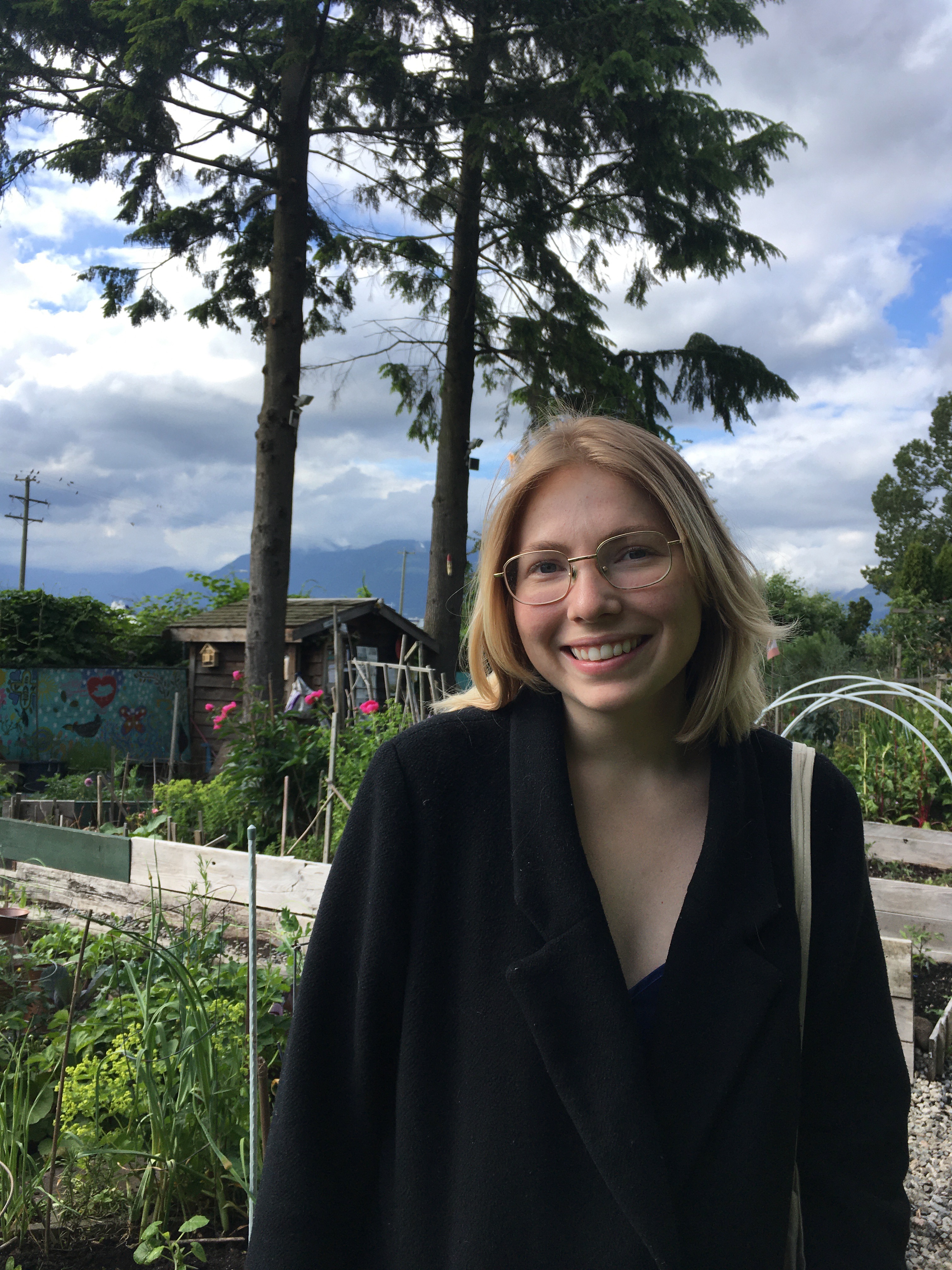
This past year, the CCPA created the Kate McInturff Fellowship in Gender Justice to honour the legacy of senior researcher Kate McInturff who passed away in July 2018. Kate was a feminist trailblazer in public policy and gender-based research and achieved national acclaim for researching, writing, and advocacy. The fellowship supports a paid internship at CCPA for a student committed to fighting for gender equality through policy research.
Heather Lawson (pictured), our first Fellow, is a recent graduate from McGill University in economics and philosophy and is looking forward to starting a law degree at Dalhousie University this fall. She is spending the summer at the CCPA helping to research and design our new gender budgeting portal. We caught up with Heather in Vancouver.
-
What do you hope to achieve this summer at the CCPA? What areas of feminist research interest you?
Joining the CCPA, I was excited to unite my degree in economics and minor in gender studies. Getting to build on my theoretical knowledge of economics and incorporating feminist research is extremely valuable to me. I am also grateful to gain experience in public policy work before attending law school in the fall.
Prior to my work at the CCPA, I was splitting my time between a sexual assault centre, an Indigenous education non-profit, and a unionization drive. In these roles I felt that I was doing important ‘ground-level’ work but I was missing the ability to challenge larger systems at play. As the McInturff Fellow, I am spending my time doing exactly that. The opportunity to use my knowledge and experience in anti-violence, anti-colonialism, and labour rights to research police budgets, prisons, and the state of intimate-partner violence during the pandemic is incredibly motivating.
-
What do you see as the challenges and opportunities for doing feminist research at this moment?
Feminist research should be foundationally intersectional. Gender budgeting arose from the recognition that policies are not neutral in the ways they affect individuals. One major challenge I have encountered is related to the quality and transparency of government data. Much of the data in Canadian reports is not disaggregated by race. Without the ability to examine how policies affect people as a result of important identifying factors, feminist researchers are less able to meaningfully engage with anti-oppressive work.
I have joined the CCPA at a very powerful time. Mass movements calling for a dismantling of systemic racism have resulted in many independent studies that are filling in important data gaps and educating the public about the ways in which budgeting upholds white supremacy. This grassroots cultural shift is an opportunity for feminist researchers to critically examine the work they are doing and how they are doing it.
Additionally, the COVID-19 pandemic has shifted so many perspectives on ‘normalcy’. This poses a challenge and opportunity for feminist researchers globally. The spotlight on public health and funding for social services has illustrated so many ways in which marginalization was maintaining the status quo. Now there is a chance to demand a new status quo. While this is an exciting opportunity, feminist researchers will inevitably face challenges resisting austerity and a desire to return to a normal that worked for so few.
-
Can you give some examples of exciting progressive policy or community work that you are following or have been involved with?
This summer involved a lot of changes for me, one of them being a move to Vancouver, BC. From here I have had the chance to follow and participate in local demonstrations against racism and colonialism.
The community work that I am most proud of was at the sexual assault centre where I worked in Montreal. I worked to create partnerships with community organizations representing marginalized groups and was involved in policy work to more meaningfully address sexual violence on university campuses. I am still involved from Vancouver, working this summer on a book club for survivors of sexual violence.
-
What are your plans next year? What areas of law do you hope to pursue?
In the fall I will be attending the Schulich School of Law at Dalhousie University. Although I have always intended to focus on criminal law, I am excited to enter into my first year of law school with openness towards many fields of study.
Working with survivors of sexual violence, I grew increasingly frustrated with the failures of the legal system. I hope to get involved with the anti-violence community at Dalhousie and continue to advocate for survivors. I also hope to engage with movements newer to me such as prison abolition, environmental justice, and Indigenous law.
-
What does a feminist researcher do in their spare time in the current circumstances? In other words, have you seen/read/listened to anything good this summer?
I am lucky to be very busy exploring (socially distanced, of course) a new city! This for me has meant hiking, camping, and lots of beaches. Otherwise, I have been celebrating pride, and returning to its roots, by reading Leslie Feinberg’s Stone Butch Blues. I am also trying some more creative activities like painting before I really hit the books again in law school.
You can read Heather's first blog, Defunding the police: What will it mean for survivors of sexual violence? on Behind the Numbers.
To help fund the future of the Kate McInturff Fellowship in Gender Justice, please click here.